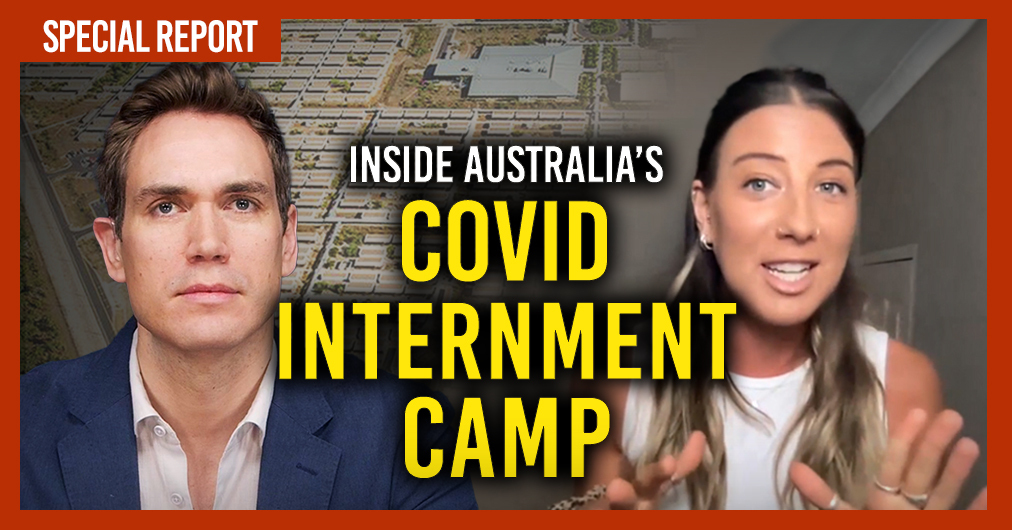It wasn’t so long ago that Australia was lauded globally as a rare success story in the fight against Covid. Its federal and state governments were eager to take credit for this, and Australians were eager to give it to them: for a time, the country’s political leaders enjoyed levels of approval not seen in decades.
But as the pandemic inches towards its two-year anniversary, any warm feelings are but a distant memory. Today might be Australia Day, but the mood isn’t one of celebration. Australia is having a bad summer, and Australians are angry with their governments, especially the federal government led by Prime Minister Scott Morrison.
A few months ago, the Morrison government looked as though it would cruise back to power in the upcoming federal election, which must be held by May this year. This month, however, the Opposition Labor Party’s primary vote climbed past the Coalition’s for the first time ever. Morrison may still be leading Opposition leader Anthony Albanese as preferred Prime Minister by 7%, but he had a 23% lead in August. The trend is clear.
The immediate cause for the government’s political woes is the acute shortage of rapid antigen tests (RATs) across Australia. Although the federal and most state governments were right to shift to a ‘living with Covid’ approach late last year, they failed to anticipate the entirely predictable surge in demand for testing as society opened up and the highly transmissible Omicron variant took hold.
To manage mounting pressure on testing and supply chains, the National Cabinet, with the notable exception of Western Australia, agreed to redefine ‘close contact’ more narrowly, reduce the required period of isolation for positive cases, and permit the use of RATs instead of only relying on PCR tests. However, having failed to stock up on RATs, test kits rapidly ran out and could not be found for love or money. Actually, that’s not quite right. The small number of RATs that could be found cost a lot of money — in one case $500 for two tests.
What followed was immense public confusion and consternation, as well as crippling staff absences, since negative test results are necessary for ending mandatory isolation and international arrivals. The federal government responded by washing its hands of the problem, only providing free kits to six million low-income earners, and blaming state and territory governments since testing is their purview. In return, the states blame the federal government for failing to ensure a reliable supply of RATs to the country.
Yet behind these problems lies a more profound political failure: the Government’s inability to explain Australia’s almost overnight decision to drop its ‘Zero Covid’ approach. For almost two years, Australians were told that they should avoid Covid at all costs; today, they are accommodating very high daily case numbers with minimal restrictions.
Given Australia’s very high rates of vaccination and Omicron’s milder symptoms, this is arguably the right approach. Nonetheless, Australian leaders and public health officials, with few notable exceptions such as Queensland’s Chief Health Officer John Gerrard, have failed to make a sustained case for the new strategy publicly. And that has left many Australians concerned and confused, wondering if the Government is just winging it.
So rattled is the Prime Minister by his rapidly declining popularity that he attempted to distract from these problems by using the oldest trick in the Australian political playbook — looking tough on borders. Yet even the detention and subsequent deportation of Novak Djokovic has failed to revive his political fortunes, instead turning into a prolonged farce that made the federal government look even more useless.
So far, Australia’s anger has mainly been directed at Prime Minister Scott Morrison. And most of it is justified: Morrison’s incompetence, preference for soundbites over substance, and propensity to shirk responsibility have meant that Australia suffered from a leadership vacuum in the middle of one of the worst crises in its history.
But the dysfunction runs much deeper. Indeed, the problems exposed during Australia’s summer of discontent are symptomatic of the country’s entire pandemic response — but they can no longer be papered over by lockdowns. At the root of the problem are changes to the Australian state that began decades ago and whose negative impacts have finally come home to roost. Having set out to create a state that is less responsive to popular demands, Australia’s political elites have ended up creating a state that is incapable of addressing serious crises.

Inside Australia’s Covid internment camp
Australia went through a deep political and economic crisis in the Seventies, which, at the time, political elites attributed to unrealistic popular expectations from an overburdened state. In response, from the Eighties, both centre-Left and Right-wing governments sought to dismantle the Keynesian compromise that underpinned a relatively equitable distribution of income. Although justified in terms of efficiency, rationalisation and competitiveness, the main purpose of Australia’s neoliberal transition over subsequent decades has been to reduce the state’s responsiveness to society.
Policymaking and implementation processes increasingly transformed the Weberian ‘command-and-control’ structures of the post-World War II state into a diffuse array of quasi-independent agencies, both public and private, loosely coordinated by the central government. State capacity was hollowed out, while fragmentation impeded central agencies’ capacity for direct action, and blurred lines of control and accountability. This was a design feature, not a bug of the emerging Australian regulatory state. Having shed direct control, political leaders could claim plausible deniability over policy decisions and their outcomes in many areas.
Federalism has only made these problems worse, routinely hampering Australia’s response to the pandemic and generating an endless blame game between the federal and state governments. Just like the federal government, state and territory governments’ capacity has also been hollowed out. They have also struggled with federally imposed budget austerity, weakening their capacity to deliver important public functions, such as health.
All of which made it impossible to coordinate a national response to the pandemic. States and territories have often acted as independent countries, paying little attention to the federal government and to each other. They have exercised unilateral discretion over state borders and even over the international border via their hotel quarantine systems. Even now, Western Australia alone remains committed to a Covid elimination strategy and is yet to reopen its borders to other states.
In this context, Morrison’s incompetence is far from unusual — it is inherent to the kind of state Australia has. But even a leader keen to take control during the crisis would have struggled to get things done because of the very significant constraints on top-down direction in the Australian state.
And so Australia’s reckoning with its real pandemic record must extend beyond dissatisfaction with the performance of its current political leaders. Unless state structures change to become more responsive to elected leaders, and through them to the wider public, the same pathologies will continue to reappear. Australia has paid a high price for its dysfunctional state during this crisis, but it could be much higher in the next.
Disclaimer
Some of the posts we share are controversial and we do not necessarily agree with them in the whole extend. Sometimes we agree with the content or part of it but we do not agree with the narration or language. Nevertheless we find them somehow interesting, valuable and/or informative or we share them, because we strongly believe in freedom of speech, free press and journalism. We strongly encourage you to have a critical approach to all the content, do your own research and analysis to build your own opinion.
We would be glad to have your feedback.
Source: UnHerd Read the original article here: https://unherd.com




